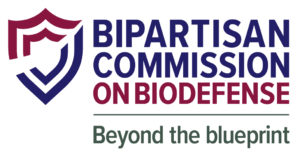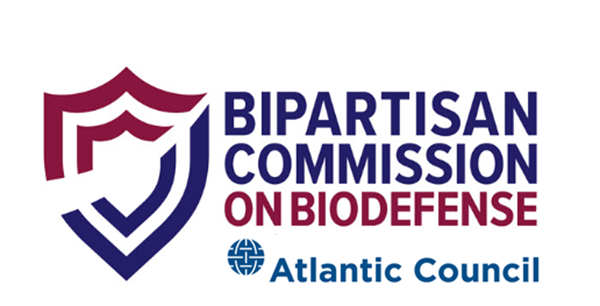New Public Awareness Campaign Urges Support For Ambitious Apollo Program For Biodefense To End Pandemic Threat In Ten Years

FOR IMMEDIATE RELEASE
Contact: Steve Aaron
SRA Communications
(717) 554-8614
steve@SRACommunications.com
NEW PUBLIC AWARENESS CAMPAIGN URGES SUPPORT FOR AMBITIOUS APOLLO PROGRAM FOR BIODEFENSE TO END PANDEMIC THREAT IN TEN YEARS
Visit TheNextApollo.org to Learn Why It’s Possible and How it Can Happen
WASHINGTON, D.C. (Dec. 8, 2021) – The Bipartisan Commission on Biodefense today unveiled a new public awareness campaign in support of their proposed Apollo Program for Biodefense, a grand project similar in scope and importance to the mission to land humans on the Moon. If authorized by the Administration and Congress, the Program can eliminate pandemics in ten years and dramatically reduce other biological threats.
The public awareness campaign, which includes a 30-second PSA and other sharable materials, is housed at TheNextApollo.org and was announced during a public meeting of the Commission at the Hudson Institute in Washington, D.C. today.
The Bipartisan Commission on Biodefense called on the federal government to urgently implement the recommendations specified in its report, The Apollo Program for Biodefense: Winning the Race Against Biological Threats, in January 2021. The report detailed an ambitious program to develop and deploy the science and technologies needed to defend against all biological threats, empower public health, and prevent pandemics. The Commission argues if the United States acts now, this Apollo Program could effectively end the era of pandemic threats in ten years.
“It is our belief that with the right encouragement and policies, groundbreaking and lifesaving technologies could be American reality within the next ten years, creating a layered and effective defense against future biological threats,” said Commission Co-Chair, former Homeland Security Secretary Tom Ridge. “With this new public awareness campaign, we are telling this story and hopefully inspiring Americans to recognize that now is the time for an Apollo Program for Biodefense that we undertake with the same ambition and ingenuity that put the first human on the Moon in 1969.”
With ambitious technology goals in mind, the Commission’s recommended grand Program would ideally deploy medical countermeasures within days (or in advance) of a biological event; detect a novel biological threat at the first human or animal cluster; and enable the public to gather in spaces built to defend against pathogen transmission. The United States must invest in innovation by engaging and motivating America’s entrepreneurial spirit to achieve these goals quickly.
“The recent discovery of the Omicron variant of COVID-19 is yet another reminder of why our federal government must get much more aggressive in how our nation deals with biological threats,” said Commission Co-Chair, former Senator Joe Lieberman. “While the outsized effects of COVID-19 demonstrate how vulnerable the United States is to biological threats, our response to COVID-19 also illuminates the country’s astounding potential in terms of resources, manpower, and creativity. The rapid creation of multiple COVID-19 vaccines speaks to that limitless potential.”
The full report may be accessed here. For interviews with Commission leadership, please contact Steve Aaron at steve@SRACommunications.com.
About the Bipartisan Commission on Biodefense
The Bipartisan Commission on Biodefense was established in 2014 to conduct a comprehensive assessment of the state of U.S. biodefense efforts, and to issue recommendations to foster change. The Commission’s 2015 report, A National Blueprint for Biodefense: Leadership and Major Reform Needed to Optimize Efforts, identified capability gaps and recommended changes to U.S. policy and law to strengthen national biodefense while optimizing resource investments. In its 2021 report, Biodefense in Crisis: Immediate Action Needed to Address National Vulnerabilities, the Commission described the extent to which the federal government has implemented the Commission’s recommendations. Other Commission publications have addressed critical needs for an Apollo Program for Biodefense; national biodetection; biodefense of critical infrastructure; diagnostics; State, Local, Tribal and Territorial response capabilities; agrodefense; and biodefense budgeting. In September 2018, the White House released the National Biodefense Strategy, a top recommendation from the Blueprint. The Commission continues to address biodefense challenges and urge reform. Former Senator Joe Lieberman and Governor Tom Ridge co-chair the Commission. Hudson Institute is the Commission’s fiscal sponsor.
